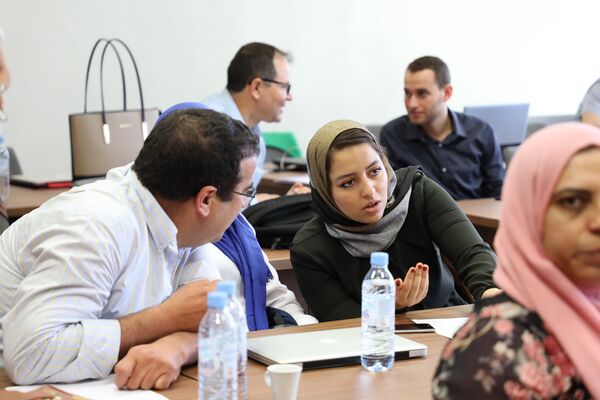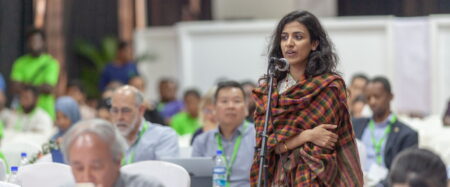Internet
Governance
How the Internet is governed directly impacts our economic and social opportunities now and far into the future.
Internet governance refers to how the Internet is managed. The way in which the Internet is governed impacts how we use it and how it evolves.
The Internet’s success is rooted in how it was built and able to grow: an open platform for innovation and sharing of ideas. This openness has defined the Internet from the outset and has enabled it to become a strong tool for positive change.
But sometimes, proposed policies and regulations oppose the open nature of the Internet, whether they intend to or not. This puts everything we know and love about the Internet at risk.

Internet Governance Events
Several Internet policy issues are debated in local, regional, and global events and meetings. These meetings include relevant actors–everyday Internet users, businesses, and governments–in their conversations, allowing a more inclusive flow of ideas and perspectives to help determine what is best for the Internet and its users.
Learn more about the events we follow in 2024:
World Telecommunication Standardization Assembly (WTSA-24)
WTSA-24 will define the senior leadership team, work program, working methods, and structure of Study Groups for the ITU Telecommunication Standardization Sector (ITU-T) for the 2025-2029 study period. Through 2024, the Study Groups will hold wrap-up meetings for the study period and develop their final reports for WTSA-24.
We are participating in the WTSA-24, held 15—24 October 2024, in New Delhi, India.
Internet Governance Forum (IGF 2024)
Local and regional IGFs happen globally throughout the year. Once a year, participants gather for the global IGF. Anyone who cares about the Internet’s future can learn and share best practices for how the Internet is governed at any of these events.
We will participate in the 19th Internet Governance Forum (IGF 2024), held 15—19 December 2024, in Riyadh, Kingdom of Saudi Arabia.
Summit of the Future
The Summit of the Future is a high-level event, held 22—23 September 2024. It will bring world leaders together to forge a new international consensus on how we deliver a better present and safeguard the future.
We are contributing to a technology track leading to a Global Digital Compact, which outlines shared principles for an open, free, and secure digital future for all.
World Summit on the Information Society (WSIS+20)
WSIS was a unique two-phase United Nations (UN) summit that began in 2003 with the goal of achieving a shared commitment to building a people-centric, inclusive, and development-oriented Information Society where everyone can create and share information.
We participated in the WSIS+20 Forum High-Level Event, held 27—31 May 2024 in Geneva, Switzerland.
NETMundial+10
The meeting will mark the tenth anniversary of the first and only Global Multistakeholder Meeting on The Future of Internet Governance (NETmundial). It will allow the multistakeholder community to convene and deliver concrete outputs, including a new roadmap to feed into ongoing discussions across the digital governance landscape.
We participated in the NETMundial+10 event, held 29—30 April 2024 in São Paulo, Brazil.
Event Updates
Defending the Internet at the World Telecommunication Standardization Assembly 2024
Taking a Look at the Global Digital Compact Endorsement
Our Role at ITU World Telecommunication Standardization Assembly 2024 (WTSA-24)
UN Convention Against Cybercrime: Internet Society’s Views
Internet Society at ITU World Telecommunication Standardization Assembly 2024 (WTSA-24)
Image copyright:
© Nyani Quarmyne, © Urban Pixel Lebanon, ©Frederic Courbet/Panos Pictures
